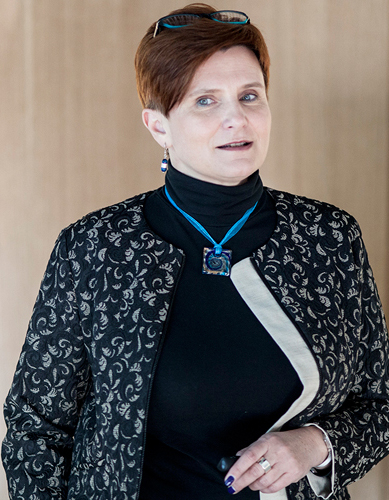
Monika Koszyńska
Monika Koszyńska says she feels privileged to be USC Shoah Foundation’s international liaison in Poland, but is also acutely aware of the magnitude of work to be done.
Koszyńska joined the USC Shoah Foundation staff as its international liaison in Poland in 2002, though she had been familiar with Steven Spielberg’s Shoah Foundation since the mid-1990s, when she was a teacher at a primary school.
As USC Shoah Foundation’s liaison in Poland, Koszyńska coordinates the Visual History Archive access sites in Poland; represents USC Shoah Foundation at conferences and seminars; organizes the Teaching with Testimony in the 21st Century training program for Polish educators; and coordinates fundraising and other outreach efforts.
She is also on the staff of the Museum of the History of the Polish Jews’ education department, which is one of two sites with full access to the Visual History Archive in Poland (the other is the History Meeting House at the Municipal Institution of Culture in Warsaw). At its grand opening in October, the museum will launch educational programming that features testimony from the VHA.
Although working with educators can be demanding and challenging, Koszyńska said it is her favorite part of her work. As an educator herself, she feels she is aware of what teachers need to know and how to present it to them.
“Each time it is a great satisfaction when educators are amazed by USC Shoah Foundation’s educational philosophy and its pedagogical approach,” Koszyńska said.
At the beginning of each training or presentation, teachers can be skeptical of the importance of the testimonies and how they can be used in the classroom, she said. “But, after an hour they start to think differently, they are more focused, less talking, more analyzing and asking questions. It is so good to observe it.”
Koszyńska said she aims to show everyone who comes in contact with the Visual History Archive that its testimonies are not for history teaching, but for teaching for the future – and that the histories of individuals “are not to proof facts, but for consideration about the present and the future of our world.”
“I am a part of something much bigger and it makes me feel very proud,” Koszyńska said.